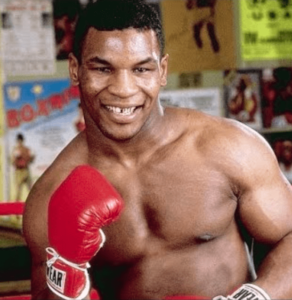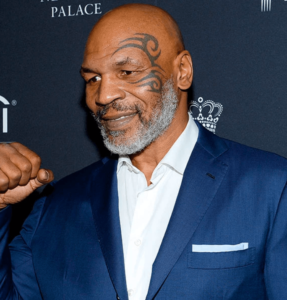ArlenJ.com
June 1, 2020


The word “ego” traces back to the early 19th century. It translates to “I” in Latin, meaning the self. Of course “I” is a personal pronoun in English, referring to one’s self.
Austrian neurologist Sigmund Freud expanded on the concept of ego with his 1920s personality theories. He posited that the human psyche is made up of three parts: the id, ego and superego. The id represents our primal instincts and urges, including sexual desires and hunger. It operates on the so-called pleasure-principle that seeks immediate gratification. The superego is the moral arbiter. It represents ideals taught by society, family and other influences.
Those old Bugs Bunny cartoons depicted a devil (id) standing on one shoulder and an angel (superego) on the other. Both were telling Bugs how to handle various situations. It’s ultimately up to the self (ego) to determine the correct and most advantageous course.
Mike Tyson and ego
Former heavyweight boxing champion Mike Tyson has a firm grip on what his ego represents. He spoke a lot about ego with Joe Rogan in a January 17, 2019 podcast. Tyson told Rogan that he doesn’t workout and train anymore because it “reactivates his ego.”
But Tyson went viral on social media in early May because of a video of him training. He concluded the 20-second clip by saying, “I’m back.”
Rise and Fall of Mike Tyson
Tyson is perhaps the most vicious, powerful heavyweight boxer in history. A series of misfortune and luck put him on the path at a young age. Tyson had been arrested 38 times by age 13, according to a Rolling Stone interview. Lorna Mae Smith-Tyson, his mother, died when Mike was only 16. His trainer, Cus D’Amato, became his legal guardian. D’Amato died three days after Tyson’s 11th professional fight, leaving Mike with no guidance or adult figure in his life. Despite the hardships, Tyson became the youngest heavyweight champion ever (20) in 1986 when he beat Trevor Berbick.
D’Amato once told Tyson, “your greatest asset can become your greatest weakness.” Tyson’s ego propelled him to championship status, fame and riches. But his ego took over his entire life, and changed him from immortal gladiator to vulnerable human being. His first career loss to James “Buster” Douglas on February 11, 1990 sent shock waves around the world.
Tyson’s career was interrupted when he served three years in prison from 1992-1995. He won his first four fights upon his return to the ring. But Tyson was never the same fighter. He lost twice to Evander Holyfield, including the infamous ear-biting disqualification. The Orlin Norris fight was ruled a no-contest after a late-hit foul by Tyson in the first-round. His victory over Andrew Golota was later rescinded after Tyson tested positive for cannabis. The loss to Lennox Lewis meant Tyson never beat either of the two best heavyweights of his era.
Egoless vs. Ego-go
Many Eastern religions teach that “egolessness” is a sought-after mental state. But our egos define our true selves. The ALPHA by Prodigy Mindset Gym™ emphasizes the concept of “ego-go.” A properly-utilized ego amplifies purpose and guides men towards their goals. Conscious command means training your brain to maximize your innate abilities and gifts.
Mike Tyson understands that God gave him a gift that facilitated his roller coaster ride through life. He suppressed his imbalanced ego because he could not control it. But men cannot run from their true selves. Ego-go means finding balance between our natural gifts and flaws. Tyson will always be a fighter. He’s also a deeply spiritual sage, father and husband who found equilibrium in his 40s. Tyson is ego-go in 2020 and contemplating a comeback to the ring at age 53.
Click here to learn more about ego-go and the ALPHA by Prodigy Mindset Gym™.
